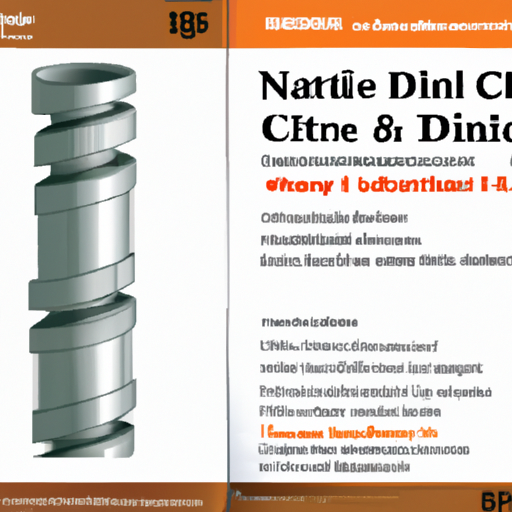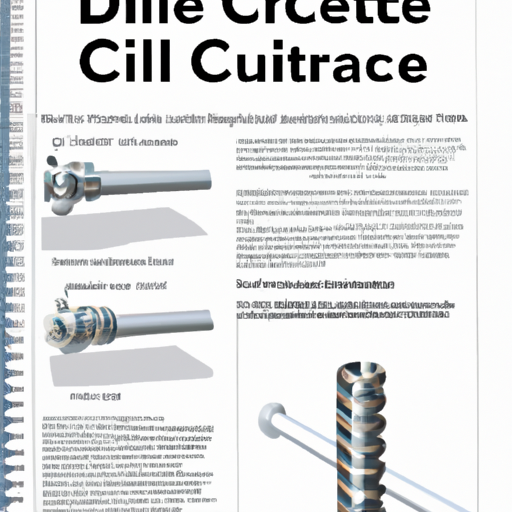The Ultimate Guide to Drill Pipe NC38: Unveiling its Significance, Specifications, and Applications

Introduction:
Drill pipes are the backbone of any drilling operation, supporting the entire drilling process in the oil and gas industry. Among the various types available, NC38 drill pipe holds a prominent position due to its exceptional strength, reliability, and versatility. In this comprehensive guide, we will delve into the significance, specifications, and applications of drill pipe NC38.
I. Understanding the Significance of Drill Pipe NC38:
Drill pipe NC38 plays a crucial role in ensuring efficient and smooth drilling operations. Its significance can be attributed to the following aspects:
1. Enhanced Strength and Durability:
NC38 drill pipes are designed to withstand high-pressure environments and extreme drilling conditions. Manufactured with high-quality steel alloys and advanced heat treatment processes, they exhibit superior strength, durability, and resistance to wear and tear.
2. Improved Torque and Torsional Strength:
NC38 drill pipes are engineered to provide excellent torsional strength, allowing them to transmit maximum torque from the drill bit to the surface. This ensures efficient drilling and reduces the risk of failures during challenging drilling operations.
3. Optimal Hydraulic Performance:
The NC38 drill pipe's design incorporates precise dimensions and internal profiles, enabling efficient fluid flow during drilling processes. This enhances the hydraulic performance of the drilling system, facilitating the circulation of drilling fluids and improving overall drilling efficiency.
4. Seamless Compatibility:
NC38 drill pipes adhere to industry-standard connections, ensuring seamless compatibility with various drilling tools and equipment. This compatibility enhances operational flexibility and enables easy integration into existing drilling setups.

II. Specifications of Drill Pipe NC38:
To gain a deeper understanding of drill pipe NC38, let's explore its key specifications:
1. Size and Dimensions:
NC38 drill pipes typically have an outer diameter of 3.5 inches (88.9 mm) and a wall thickness ranging from 0.254 to 0.368 inches (6.45 to 9.35 mm). The length of each pipe segment is usually standardized to 30 feet (9 meters).
2. Tool Joint Configuration:
NC38 drill pipes feature a tool joint connection type known as "NC" (Narrow Chord). The tool joints are threaded and attached to each end of the pipe body, ensuring a secure and reliable connection.
3. Thread Type:
The thread type used in NC38 drill pipes is API (American Petroleum Institute) Modified Buttress Thread. This thread design offers high load-carrying capacity and resistance to thread galling or damage during makeup and breakout operations.
4. Connection Strength:
NC38 drill pipes are designed to provide optimal connection strength to withstand the demanding forces encountered during drilling. Their connections have a torque strength ranging from 26,000 to 33,000 ft-lbs (35,200 to 44,700 Nm), ensuring reliable performance in various drilling environments.
III. Applications of Drill Pipe NC38:
The versatility of drill pipe NC38 makes it suitable for a wide range of drilling applications. Let's explore some of its common uses:
1. Oil and Gas Exploration:
NC38 drill pipes are extensively used in oil and gas exploration projects. They enable the drilling of vertical, directional, and horizontal wells, allowing for the extraction of oil and gas reserves from deep underground formations.
2. Geothermal Drilling:
NC38 drill pipes find applications in geothermal drilling, where they facilitate the extraction of geothermal energy from the Earth's subsurface. Their robust construction and compatibility with geothermal drilling rigs make them ideal for this renewable energy sector.
3. Mining Operations:
In the mining industry, NC38 drill pipes are utilized for various drilling tasks, including mineral exploration, geotechnical investigations, and ore extraction. Their strength and durability enable efficient drilling in demanding mining environments.
4. Water Well Drilling:
NC38 drill pipes are commonly employed in water well drilling operations. They enable the construction of reliable water supply wells, ensuring access to clean water in urban and rural areas.
5. Construction and Foundation Engineering:
NC38 drill pipes are also utilized in construction and foundation engineering projects. They play a vital role in drilling boreholes for building foundations, soil investigation, and installing ground improvement systems.
Conclusion:
Drill pipe NC38 is a critical component of drilling operations, offering exceptional strength, reliability, and versatility. Its significance lies in its enhanced strength, improved torque, optimal hydraulic performance, and seamless compatibility. With its standardized specifications and compatibility with various drilling tools, NC38 drill pipes find applications in oil and gas exploration, geothermal drilling, mining operations, water well drilling, and construction projects. By understanding the significance, specifications, and applications of NC38 drill pipes, drilling professionals can make informed decisions and optimize their drilling operations for maximum efficiency and productivity.




 8613371530291
8613371530291